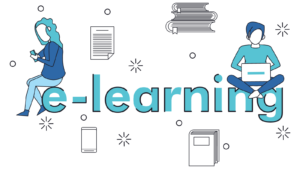Mary Helen Immordino-Yang, one of the leading figures in the field of Mind, Brain, and Education, once started a talk with a picture of a jack-o’-lantern (a Halloween pumpkin with a candle inside). “When you look at this jack-o’-lantern in the darkness,” she said, “you can’t see the candle on the inside that’s shining out. You can’t see the warmth and the heat and the light that make that thing come alive. But you imagine what’s going on inside there and the state of that candle based on the feeling it gives you when you watch, based on the knowledge you have…
“I can’t see inside your minds right now, you can’t see inside mine. But if we want to learn something from one another, and connect to each other, we use our own experiences as a kind of a platform for vicariously conjuring and experiencing what we imagine might be the physiological state of another human being…
“As I look across you right now, I look at your facial expressions, I look at your postures, I look at the nods and the behaviours you’re doing… And you’re doing the same thing with me. You’re watching me and trying to imagine and build for yourself – inside your own mind – the information that I’m trying to share from mine. It’s a kind of a cognitive empathy that we have going on… And that, right there, is the essence of education.”
And that, right there, illustrates one of the key challenges of teaching online. If the role of the educator is to empathise with the learner, that job becomes so much more difficult when the educator and the learner are not in the same location.
Of course, the challenges of working together remotely are not confined to the education sector. “Do you think it is preferable to work face-to-face or in close physical proximity? Or do you prefer to work virtually?” asks Marcus Hildebrandt and his colleagues at the beginning “Closeness at a Distance: Leading Virtual Groups to High Performance”.
“If you choose the first option, you are in the company of a vast majority of people working virtually and internationally. It is widely believed that groups working together remotely with the help of virtual tools do not perform as well as physically collocated groups. Unfortunately, from our experience we know that this is often true.”
Are there ways around the difficulties of virtuality? According to Dr Hildebrandt et al, “the answer is yes, definitely. Not only can we overcome the intricacies of remote collaboration, but with good virtual leadership we can actually use the benefits of working globally and capitalize on the high diversity found in global groups.”
EFL Magazine’s Online Teaching Summit was bursting with brilliant ideas, suggestions and advice on ways to “overcome the intricacies of remote collaboration”. In my webinar, I focussed on ways to “use the benefits of working globally”.
For the past two years I’ve been developing a programme called SkypeRead, which brings people from all over the world together in Skype group calls to do read-throughs of movie scripts. The programme has been magnificently supported by students and teachers from more than 20 countries, as well as by Wes Anderson, Start Motion Pictures, and the Bombay Sapphire Imagination Series.
The first objective of SkypeRead is to improve participants’ remote collaboration skills: doing a read-through can be a powerful way to build empathy. To find out more about this, I interviewed Eddie Jemison, the actor best known for his role as Livingston Dell in the “Ocean’s Eleven” movie trilogy, and I asked him about the effects that doing a read-through have on a group.
“It makes everyone realize they are all pulling for the same cause,” he said. “It gives the experience shape and purpose. Without a read-through everyone is just guessing at how all the parts fit together. Plus, it’s fun and everyone feels more a part of a team. And teamwork is always better than the sum of the work of individuals.”
SkypeRead’s second objective is to improve participants’ English-language communication skills. Robert Lane Greene, the author of “You Are What You Speak” (2011) calls it full spectrum language learning. “Once a learner is at a certain level,” he told me, “it’s important to start learning different registers of the language. Making people repeat – out loud – good quality writing that approaches natural spoken English is a great idea.”
These communication and collaboration skills can then be used for group learning across a range of domains. Earlier this year, for example, we connected Japanese students at Omi Kyodai-sha, a high school near Kyoto, with American students taking part in a science summer camp at Alma College, Michigan.
Each cross-border group, which had five or six members, began by doing a read-through of “Europa Report” (2013), an exciting and intelligent science-fiction film about an international mission to search for evidence of life on one of Jupiter’s moons. Over the following weeks, the students collaborated on formulating and answering a science question connected to the movie.
The questions they investigated ranged from chemistry – “Is there an alternative to using hydrazine as rocket fuel?” – to ethics – “Do the scientific discoveries from space outweigh the need for humanitarian missions on Earth?” At the same time, the students explored the challenges and benefits of working globally.
“The most important part of this is the opportunity it gives both sides,” said Takeshi Taniguchi, an English teacher at Omi Kyodai-sha. “We’re bringing native and non-native speakers together, not only to think about how the universe works, but to understand more about working with each other.”
[jbox color=”Platinum”]
Currently, we’re using SkypeRead as part of a “Global Communication and Science” project that uses solar eclipses as ‘teachable moments’ to connect university students in different countries. The airline Garuda Indonesia is generously sponsoring the project, and our partner universities include Tadulako University in Palu, Indonesia; the University of Mahajanga in Madagascar; and Kobe Shinwa Women’s University in Japan. Link: http://tensentences.com/
[/jbox]




